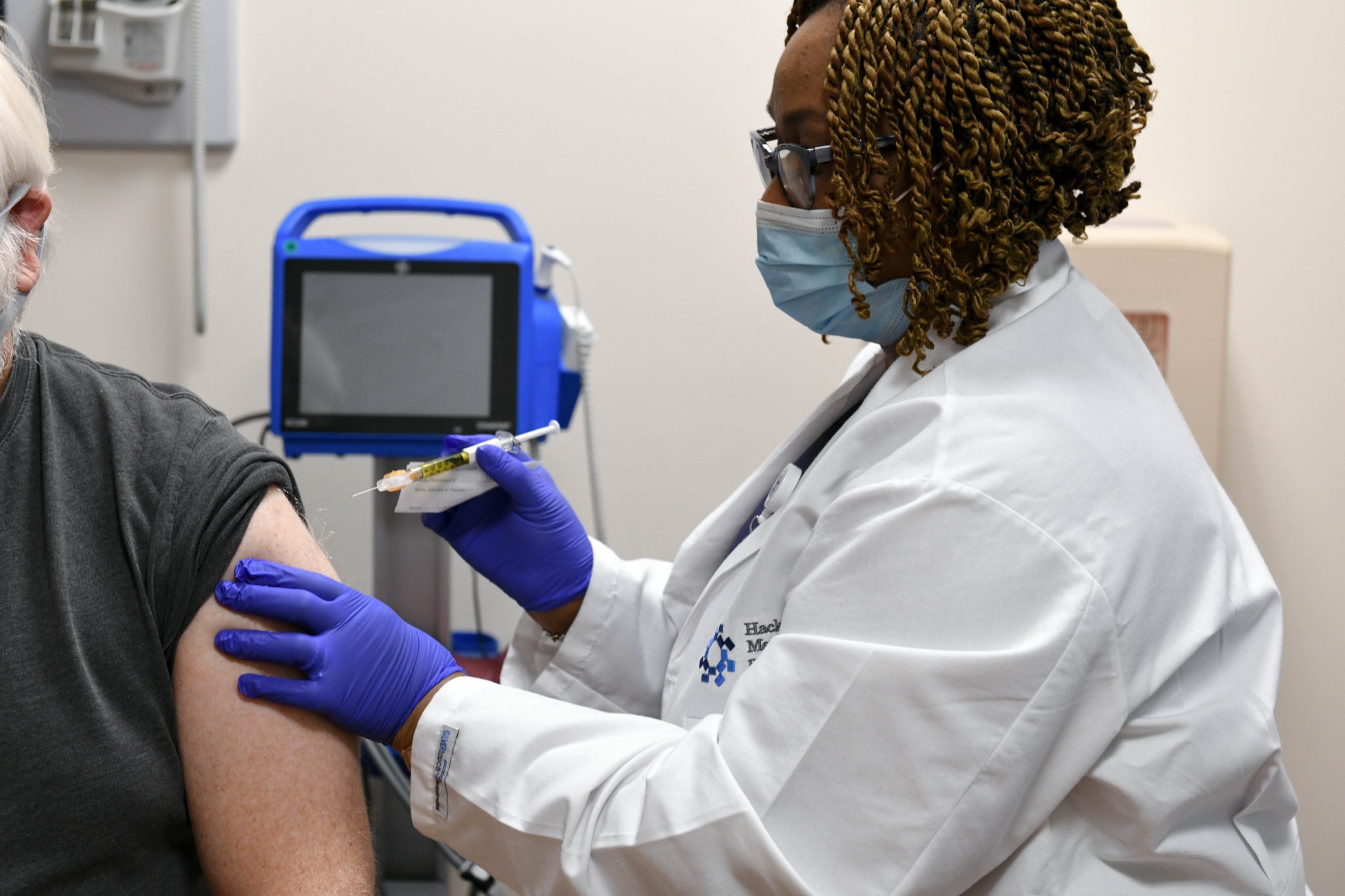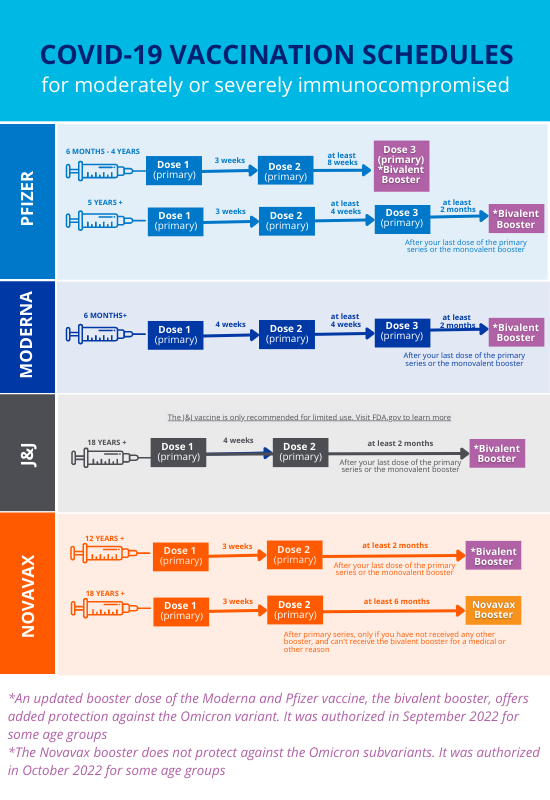Should You Get a COVID Booster Shot? Our Doctor Explains

August 24, 2021
Updated:1/5/23
Information regarding COVID-19 and vaccines are continually evolving, new details may be available since this content was developed. Please visit the CDC's website for the most up to date information.
As the COVID-19 vaccine evolves and mutates, researchers are tracking these changes and developing booster vaccines to keep up.
For example, the bivalent vaccine or the “Omicron booster”, was developed to target the original strains of COVID-19, and the BA.4 and BA.5 lineages of the Omicron variant. Newly developed boosters target the most prominent or newer variants of the virus, improving your protection.
We connected with Hackensack Meridian Health’s chief physician executive, Daniel Varga, M.D., to talk through why we need booster shots now and what you should know.
Does everyone need a COVID booster shot?
“Since immunity wanes over time, it’s important to stay up to date on your vaccination,” shares Dr. Varga. “Getting boosted is the best way to stay protected as new variants emerge, and as your vaccine protection decreases over time.”
For the general public, it is currently unknown how long immune protection lasts from the vaccines. Developed antibodies may decrease over time, weakening your protection against COVID and emerging variants; a booster shot will help reinvigorate that protection.
It’s important to note, data collected has shown that protection against infection may decrease over time, however the vaccine remains very effective in preventing hospitalizations and death. As time passes, you may be more susceptible to catching COVID-19, but if you’re vaccinated your symptoms are expected to be less severe.
This is not the first vaccine that requires a booster – for example, every year there is a new flu vaccine, and it’s recommended to get a tetanus, diphtheria and pertussis (Tdap) booster every 10 years.
Does this mean the vaccine isn’t effective?
No. The COVID-19 vaccine is effective and advisable. The vaccine is proven to protect people from getting severely ill, being hospitalized or dying from COVID.
For the immunocompromised, a COVID-19 booster will increase your immunity if your immune system did not respond as strongly to the first or second dose. For the general public, a booster helps you stay protected as your immunity wanes over time.
Can I get a COVID booster shot right now?
Eligibility for the COVID-19 boosters depends on age and the timing from your last vaccination.


The duration of a vaccine’s effectiveness depends on the vaccine and an individual’s immune response. Researchers are continually monitoring the immunity in those who have received the COVID-19 vaccines.
What type of booster should I get?
As of December 2022, the updated bivalent boosters were authorized for use in everyone ages six months and older. This bivalent vaccine targets two separate variants of the virus. It’s used as a single booster dose, at least two months after your primary or booster vaccination. Learn more about the bivalent booster.
In October 2022, the FDA and CDC extended the emergency use authorization for Novavax to distribute a booster vaccine. This vaccine does not protect against the Omicron variant, and is to be used for those 18 and older who can not receive the bivalent booster for medical or accessibility reasoning, or those who would otherwise not get a booster.
Why do immunocompromised people need boosters?
An immunocompromised person has a weakened immune system. Your immune system is a combination of your cells, organs and proteins that work in tandem to protect your body from unwelcome intruders like viruses, bacteria, parasites and toxins.
If your immune system is compromised, it can impact your ability to fight off infections and disease, including COVID-19.
The COVID-19 vaccines utilize our immune system to fight off the virus – the vaccine provides your body with the instructions on how to recognize and destroy COVID-19 to prevent it from multiplying. For immunodeficient patients, you may not have as strong of a response to the vaccine as someone without deficiencies, thus the need for a boost.
Who is considered to be moderately to severely immunocompromised?
The FDA has identified immunocompromised populations as those who have:
- Been receiving active cancer treatment for tumors or cancers of the blood
- Received an organ transplant and are taking medicine to suppress the immune system
- Received a stem cell transplant within the last 2 years or are taking medicine to suppress the immune system
- Moderate or severe primary immunodeficiency (such as DiGeorge syndrome, Wiskott-Aldrich syndrome)
- Advanced or untreated HIV infection
- Active treatment with high-dose corticosteroids or other drugs that may suppress your immune response
Next Steps & Resources:
- Clinical Contributor: Daniel Varga, chief physician executive at Hackensack Meridian Health
- To make an appointment with a doctor near you, call 800-822-8905 or visit our website.
- Get your COVID-19 vaccine – schedule now.
The material provided through HealthU is intended to be used as general information only and should not replace the advice of your physician. Always consult your physician for individual care.
Find a doctor near me
Can Babies Get COVID-19?

Protect your baby from COVID-19. Learn about symptoms, vaccines, and when to seek medical care. Dr. Riollano Cruz offers expert advice. Call 800-822-8905.
6 COVID-Friendly Party Snacks

Enjoy COVID-friendly party snacks this year! Learn safe ways to celebrate & protect yourself and guests. Get your COVID-19 vaccine now.
Find a doctor near me

Can You Get COVID Twice?
Can You Get COVID Twice? Learn about COVID-19 reinfection from Drs. Nehmad and Unuigbe. Get the facts and stay safe. Call 800-822-8905.

Could You Be Suffering From Long COVID?
Long COVID symptoms? Find relief. Learn about long COVID symptoms, risk factors, and available help at the COVID Recovery Center. Call 833-565-0405.

Myocarditis, COVID-19 & the Vaccine
Understand myocarditis risks from COVID-19 and vaccines. Learn from leading cardiologists. Schedule your vaccine appointment today.

COVID-19 Myths 3.0
Debunk COVID-19 myths with Dr. Jacobs. Learn the truth about vaccines & more. Get reliable info & resources now.
